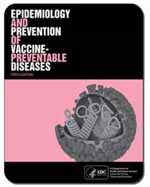
Letter from Dr. Feingold
Greetings to all members of FAUS!
It is almost six years since the AMA meeting in New York (June 1973), where I made the first public announcement linking food additives to behavioral disturbances and learning disabilities (B-LD).
The numerous successful responses to dietary intervention reported from around the world have permitted us to make great progress in the face of a storm of doubt and criticism.
We now have experimental support that food dyes cause hyperactivity and learning disabilities (Swanson 1980; Shaywitz 1978) (get
We are now slowly but confidently broadening the base of involvement to include a variety of neurologic and neuromuscular disturbances, e.g., grand mal and petit mal epilepsy, psychomotor seizures, La Tourette syndrome, retardation, autism, the behavioral component of Down’s syndrome, enuresis (bedwetting), serous otitis, eye muscle involvement, and delinquency.
I have a report on the dietary management of juvenile delinquency which will appear in the International Journal of Offender Therapy and Comparative Criminology. A report on the dietary management of congenital nystagmus should appear this year.
Much credit is due the many parents throughout the country who through personal sacrifice and dedication have shared their experience with others and brought a new life to many children and their families. I thank each of you for your participation and your contributions which made possible the worldwide awareness and recognition of our program.
I hope more parents will recognize it is important to become involved. Only through a broad base of involvement can we hope to influence the schools, industry and tovernment. Contact your local association and ask what you can do to help. With the support of everyone we must succeed.
The new cookbook will be published in early April. Hopefully,the book will be successful and provide the funds to place FAUS on a strong, secure foundation. With full-time personnel we shall be able to promote a broader participation of parents throughout the country, not only in nutrition but also school lunches and curricula, as well as juvenile delinquency and programs for prevention.
Ben F. Feingold, MD




















